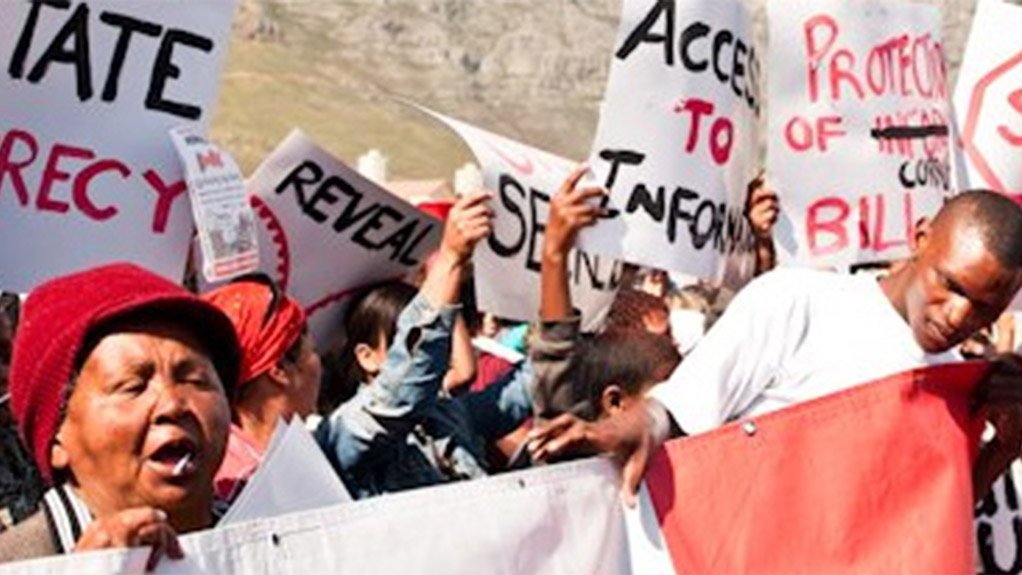There must a greater commitment to transparency from the state and private sector to limit the abuse of security, the Right2Know (R2K) Campaign said on Tuesday.
"Access to information mechanisms are failing," it said in its report "Secret State of the Nation" for 2014.
While the Promotion of Access to Information Act (Paia) was a powerful tool to get information from a public or private body, such requests were often resisted.
"But in practice Paia often proves to be a frustration that is symptomatic of resistance to openness from information holders," it said.
According to the civil society network, only 16% of requests made between August 2012 and July 2013 resulted in the release of information.
Fifty-four per cent of initial requests were met with silence, while 62% of requests that were under internal appeal did not get a response in the 30 days as required by the law.
The R2K said the need for transparency had to be applied to data on the increase of protests, national key points, upgrades to President Jacob Zuma's Nkandla home in KwaZulu-Natal, the so-called "spy tapes" that led to the dropping of charges against Zuma, and the Khampepe report on the 2002 Zimbabwean elections.
Democratic Alliance leader Helen Zille said on Monday there was "sufficient evidence" on the tapes for a review application of the decision to withdraw corruption charges against Zuma.
The DA's lawyers had advised it not to make the contents of the tapes public until the review application had been heard.
With regard to the Khampepe report, the Supreme Court of Appeal in Bloemfontein heard argument on September 4 on whether to make public the report into the fairness of the 2002 election in Zimbabwe.
Jeremy Gauntlett SC, for the Mail & Guardian (M&G), reportedly asked the SCA to "peek" at the report to decide whether the high court was correct in ordering the presidency to make the report public last year.
The presidency reportedly conceded that if the SCA should decide to overturn the high court's order, it would in effect be asking it overturn a Constitutional Court decision.
According to M&G, this was because the Constitutional Court had previously ruled that the issue of whether the report could be handed over was to be determined by a "judicial peek" at the report itself.
This meant it was to be decided based on the information the report contained.
Marumo Moerane SC, for the presidency, argued that two supplementary affidavits submitted by Zuma and former president Thabo Mbeki had enough weight to overturn that decision.
Judgment was reserved in the matter.
EMAIL THIS ARTICLE SAVE THIS ARTICLE
To subscribe email subscriptions@creamermedia.co.za or click here
To advertise email advertising@creamermedia.co.za or click here











